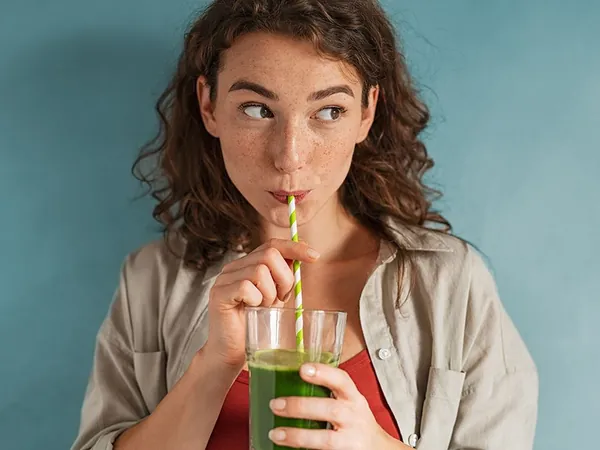
The Truth Behind New Year Detoxes and Cleanses: Science vs. Hype
2025-01-03
Author: Noah
Introduction
As the festive season winds down and the New Year begins, many look to 'detox' diets and cleanses to kickstart healthier habits. But how effective are these popular practices? Dr. David Juurlink, a Toronto-based medical toxicologist, argues that the concept of detoxifying through diets is largely a myth.
Lack of Scientific Evidence
According to Dr. Juurlink, there is scant scientific evidence to support the widespread belief that detox diets actually eliminate toxins from our bodies. Reports from medical reviews indicate that while juice fasts and liquid diets might result in quick weight loss due to drastic calorie cuts, they often lead to unhealthy rebound eating patterns once normal eating resumes.
Historical Context
Historically, purification practices have been around for thousands of years. Rituals like fasting and bloodletting were once considered legitimate medical treatments. However, modern medicine has evolved, and most detox practices are not rooted in credible science. The multi-billion-dollar detox market thrives partly due to celebrities and influencers who promote rapid detox methods, encouraging viewers with phrases like 'You absolutely have to try this!'
Social Media Influence
A study analyzing TikTok's #detox hashtag found that nearly 69 videos garnered a staggering 3.4 billion views, with many advocating the use of dubious products that promise thorough cleansing of the body's internal organs. Yet, the specific 'toxins' being purged remain undefined—an observation that Dr. Juurlink highlights as a major flaw in the detox rhetoric.
Detox Diet Practices
Detox diets often involve a range of restrictive practices, from total fasting to consumption of 'cleansing' foods, and may include various supplements. Critics, including Timothy Caulfield from the University of Alberta, argue that these regimens contradict fundamental human physiology. Our liver and kidneys are already proficient at detoxification without any external assistance from fad diets.
Research Concerns
Despite claims of purification, research indicates that many detox diets defy common principles of health. A 2022 review expressed concern over liquid-based cleanses that lack essential nutrients, potentially leading to more harm than good. Alarmingly, some detox juices can harbor harmful bacteria or high levels of oxalates—substances that may cause kidney complications with excessive intake.
Risks of Detox Practices
Dr. Juurlink warns that while staying hydrated is crucial, excessive water consumption can lead to its own set of problems, including electrolyte imbalances that endanger health. Moreover, individuals taking herbal remedies may expose themselves to heavy metals, which could cause dire consequences such as liver damage.
Anecdotal Evidence vs. Scientific Proof
Though proponents of detox diets might tout anecdotal evidence or personal testimonials, Caulfield points out that genuine scientific studies on detoxification are sparse and generally poorly constructed. The marketing surrounding detox products often feeds into societal fears about environmental toxins, persuading individuals into believing they need these regimens to combat perceived health threats.
Conclusion
Ultimately, the best advice remains clear: instead of undertaking extreme detox diets, focus on sustainable, balanced eating practices that support long-term health. Experts agree that a well-rounded diet is the key to achieving and maintaining a healthy lifestyle without the need for fads that may do more harm than good.
As we enter the New Year, it’s essential to question the allure of detoxes and cleanses. Are they the golden ticket to health or merely a fleeting sensation in the wellness market? Prioritizing informed choices may be the best detox of all.









 Brasil (PT)
Brasil (PT)
 Canada (EN)
Canada (EN)
 Chile (ES)
Chile (ES)
 Česko (CS)
Česko (CS)
 대한민국 (KO)
대한민국 (KO)
 España (ES)
España (ES)
 France (FR)
France (FR)
 Hong Kong (EN)
Hong Kong (EN)
 Italia (IT)
Italia (IT)
 日本 (JA)
日本 (JA)
 Magyarország (HU)
Magyarország (HU)
 Norge (NO)
Norge (NO)
 Polska (PL)
Polska (PL)
 Schweiz (DE)
Schweiz (DE)
 Singapore (EN)
Singapore (EN)
 Sverige (SV)
Sverige (SV)
 Suomi (FI)
Suomi (FI)
 Türkiye (TR)
Türkiye (TR)
 الإمارات العربية المتحدة (AR)
الإمارات العربية المتحدة (AR)